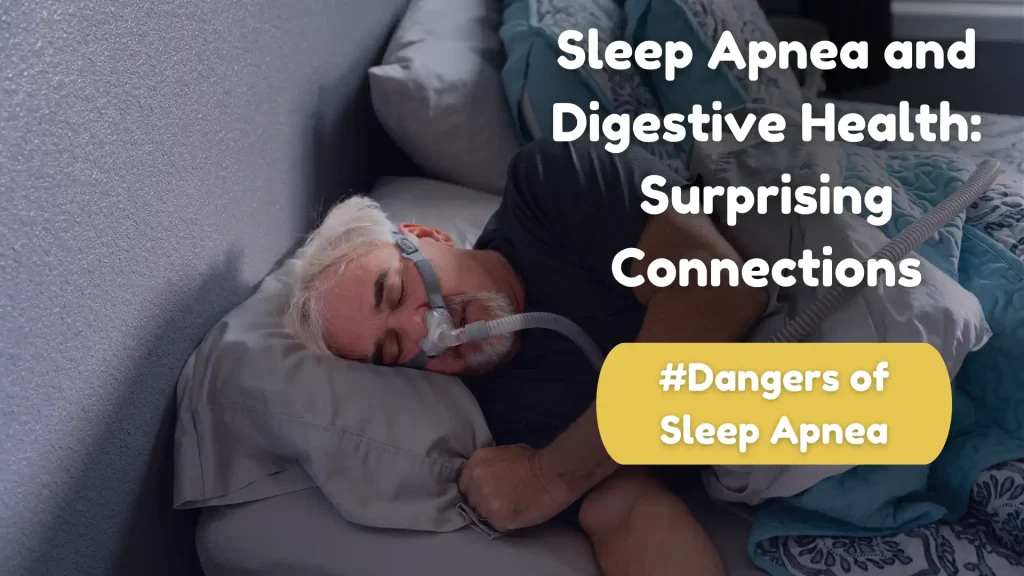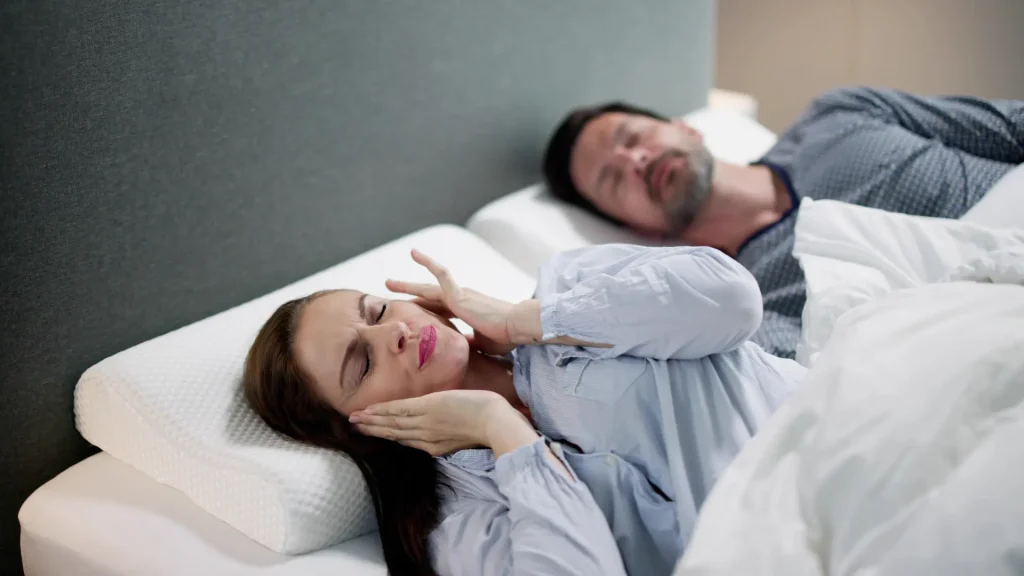Posted on Thursday, November 7th, 2024 at 9:00 am
You may already know that sleep apnea can have serious effects on your overall health, including an increased risk for heart disease, stroke, and high blood pressure. But did you know that it could have negative effects on your gut health as well?
A recent study published in the scientific journal Gastroenterology & Hepatology revealed the surprising connection between sleep apnea and digestive health. The study was the first definitive link between the two disorders, suggesting that poor gastrointestinal health can contribute to sleep disorders, including sleep apnea.
Gastrointestinal Problems: The Biology Contributing to Sleep Issues
The comprehensive study in Gastroenterology & Hepatology revealed that even the most minor digestive issues can wreak havoc on a normal sleep cycle.
One example is that of gastrointestinal reflux disease (often known by its acronym, GERD, and colloquially known as acid reflux disease). GERD occurs when the upper part of the stomach doesn’t work properly, resulting in the stomach acid “backwashing” into the esophagus. This creates a vicious cycle: GERD disrupts sleep, and this sleep disruption aggravates the symptoms of GERD. The study also revealed that there’s a strong link between GERD and obstructive sleep apnea (referred to by its acronym, OSA, in the study).
Another example is that of inflammatory bowel disease (often known by its acronym, IBD, and is the catch-all term that includes Crohn’s disease and ulcerative colitis). As with GERD, IBD sufferers often experienced sleep disruptions due to their disease, were more likely to experience daytime fatigue than their healthier counterparts, and reported a poorer quality of sleep overall.
Finally, the study concluded that the more severe the symptoms of any gastrointestinal disease — whether acquired or genetic — the more pronounced the sleep disturbance.
Put simply: maintaining your gut health is the key to getting a good night’s sleep. What’s more, if you suffer from sleep apnea due to your gastrointestinal issues, relief may be in sight with some specialized treatment.
Sleep Apnea Treatment: Relief May Be in Sight
A study published in the scientific journal Expert Opinion on Therapeutic Targets suggested that there may be relief in sight for sleep apnea sufferers who have the disorder thanks to their gastrointestinal issues. While more studies are needed to establish a definitive link between the effects of pre- and pro-biotics and gastrointestinal health, early research suggests that proper gut health maintenance — which may include incorporating these supplements in the diet — can help alleviate sleep apnea symptoms.
Another effective treatment for sleep apnea is known as a CPAP (continuous positive airway pressure) machine, which is worn at night, and is often prescribed to treat the worst symptoms of the sleep disorder, and is especially effective in keeping the airway open, resulting in ease of breathing. However, if used incorrectly, CPAP machines can further aggravate the gastrointestinal system.
Finally, children with obstructive sleep apnea (OSA) responded positively to proton pump inhibitor (PPI) therapy. PPIs are medicines that work by reducing the amount of acid produced by the glands in the stomach lining. One of the best-known PPI medications has the generic name Omeprazole but is better known by a popular brand name: Prilosec, which is now available as an over-the-counter medication (meaning you can get it without a prescription).
Silent Night Therapy Can Help You Get a Good Night’s Sleep
If you’ve tried everything to alleviate your more severe gastrointestinal health problems yet still can’t get a good night’s sleep, the experts at Silent Night Therapy can help.
Our head dentist, Dr. Clifford Brown, opened the doors of Silent Night Therapy in 1983, and he’s been proud to serve the communities of Long Island ever since. Dr. Brown’s commitment to providing his patients with the best night’s sleep of their lives involves taking a whole-body approach to health, examining all the potential root causes of sleep disruption disorders — including sleep apnea — and working together with the patient in finding the best possible solution to their problem.
Dr. Brown has a unique understanding of sleep apnea, as he suffers from the disorder himself. As a member of The American Academy of Dental Sleep Medicine (AADSM) and The Academy of Clinical Sleep Disorder Disciplines, Dr. Brown has a unique skill set that allows him to treat each client like family, while working diligently in addressing the medical root cause of the sleep disorder.
Silent Night Therapy accepts most major insurance plans, with little to no out-of-pocket costs to the patient, and offers affordable payment plans to those without insurance.
Schedule your complimentary consultation with Silent Night Therapy by calling 631-983-2463 today.

